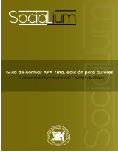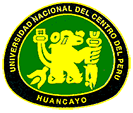Building our masculinities: the experience of rural men from Curimarca, Jauja, Junín
DOI:
https://doi.org/10.26490/uncp.sl.2019.3.1.522Keywords:
couple relationships, family violence, process of socialization, changes in traditional masculinitiesAbstract
This research’s objective was to characterize the process of masculinity construction in relation to the changes of traditional beliefs and practices, as well as their understanding and repercussion in couple relationships, from the perspective and experience of men from Curimarca, located in the province of Jauja, Junín region, in the central zone of Perú. The study, of a qualitative nature, allowed the understanding of the spouses’ life experience. The unit of analysis was men and women from the place in question. From the data collected during the fieldwork, it was found that men build their masculinity through the process of learning in the family environment. In addition, the various training sessions in which they participate help them to assume changes and influence a married life based on respect and mutual support. The research concludes that men and women have learned to be tolerant; they have established in their home an atmosphere of dialogue about problems and family projects.
References
De Beauvoir, S. (1949). El segundo sexo. Buenos Aires, Argentina: Edit. Siglo XX.
Echeburúa, E., y De Corral, P. (1998). Manual de violencia familiar. Madrid, España: Siglo XXI.
Fuller, N. (2017). NO UNO SINO MUCHOS ROSTROS, Identidad masculina en el Perú urbano. Lima: PUCP.
Marqués, J. V. (1997). "Varón y patriarcado", en Valdés T y Olavarría J. (eds.). Masculinidad/es. Poder y crisis, Ediciones de las Mujeres N° 24, Isis Internacional, Flacso, Santiago de Chile, p. 17-30.
Olavarría, J. (2018). “Masculinidades, paternidades y familia”, en Fuller N. (editora). Difícil ser Hombre, nuevas masculinidades Latinoamericanas. Lima: FEPUCP. P.83-108.
Valdés, T., y Olavarría, J. (2000). Masculinidades y poder. Santiago, Chile: FLACSO Chile.








.jpg)















